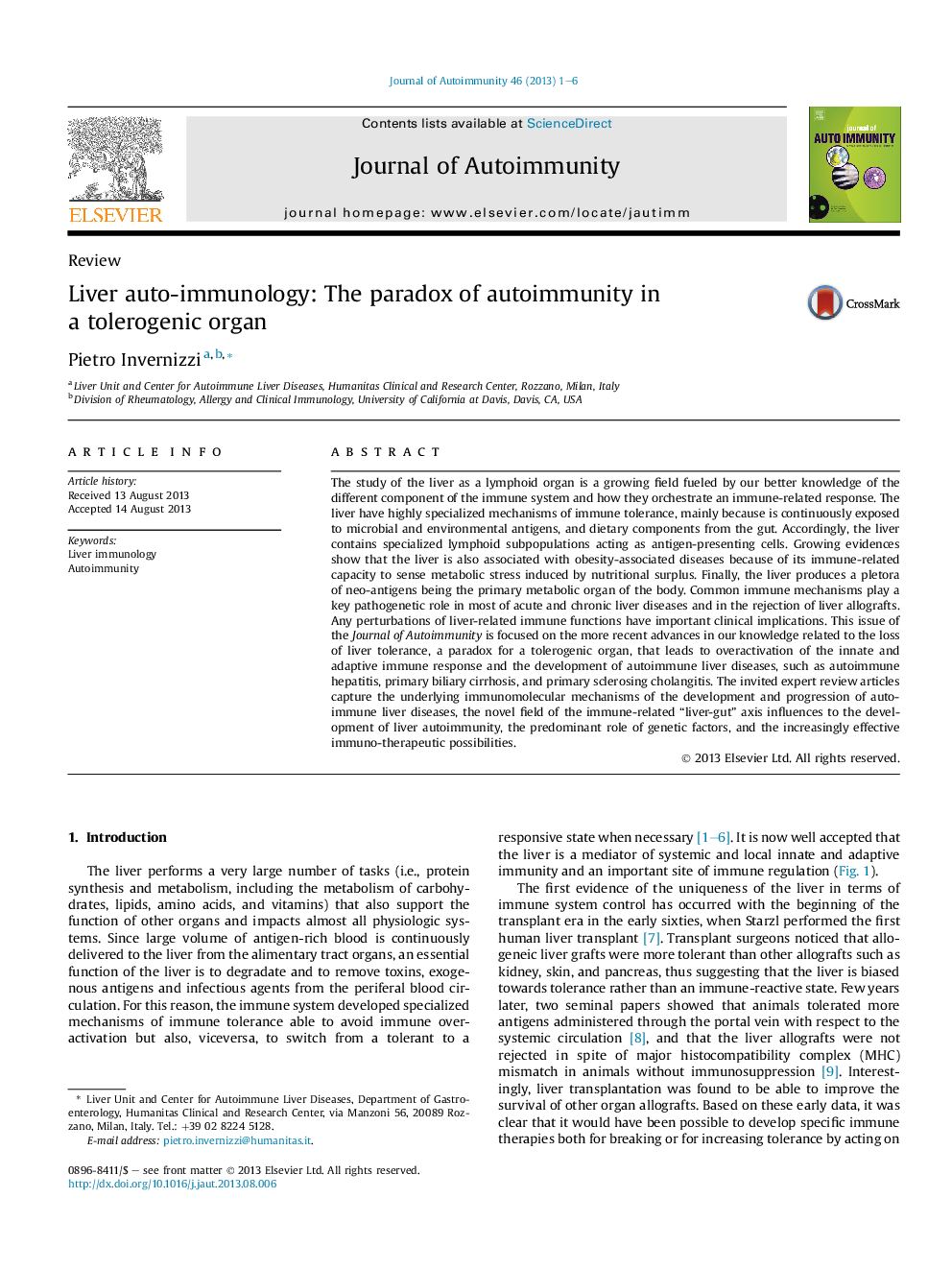| Article ID | Journal | Published Year | Pages | File Type |
|---|---|---|---|---|
| 6119299 | Journal of Autoimmunity | 2013 | 6 Pages |
Abstract
The study of the liver as a lymphoid organ is a growing field fueled by our better knowledge of the different component of the immune system and how they orchestrate an immune-related response. The liver have highly specialized mechanisms of immune tolerance, mainly because is continuously exposed to microbial and environmental antigens, and dietary components from the gut. Accordingly, the liver contains specialized lymphoid subpopulations acting as antigen-presenting cells. Growing evidences show that the liver is also associated with obesity-associated diseases because of its immune-related capacity to sense metabolic stress induced by nutritional surplus. Finally, the liver produces a pletora of neo-antigens being the primary metabolic organ of the body. Common immune mechanisms play a key pathogenetic role in most of acute and chronic liver diseases and in the rejection of liver allografts. Any perturbations of liver-related immune functions have important clinical implications. This issue of the Journal of Autoimmunity is focused on the more recent advances in our knowledge related to the loss of liver tolerance, a paradox for a tolerogenic organ, that leads to overactivation of the innate and adaptive immune response and the development of autoimmune liver diseases, such as autoimmune hepatitis, primary biliary cirrhosis, and primary sclerosing cholangitis. The invited expert review articles capture the underlying immunomolecular mechanisms of the development and progression of autoimmune liver diseases, the novel field of the immune-related “liver-gut” axis influences to the development of liver autoimmunity, the predominant role of genetic factors, and the increasingly effective immuno-therapeutic possibilities.
Keywords
Related Topics
Life Sciences
Immunology and Microbiology
Immunology
Authors
Pietro Invernizzi,
